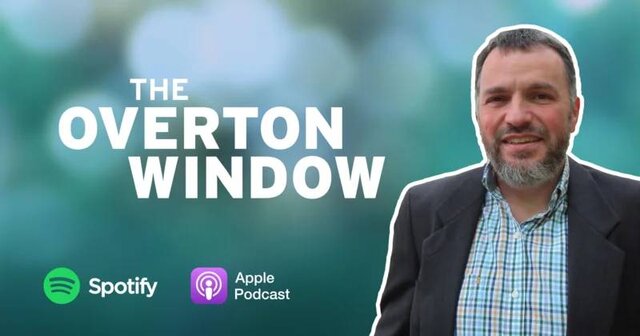
North Carolina, like many states, has faced mounting pressure to transition to renewable energy sources in response to environmental concerns. However, Jon Sanders of the John Locke Foundation is looking to change the conversation by calling into question the feasibility and long-term sustainability of the plan. On the Overton Window podcast, he discusses the main challenges and opportunities surrounding energy policy.
Jon Sanders is the Director of the Center for Food, Power, and Life at the John Locke Foundation, the free market think tank in North Carolina that helped the state avoid an expensive and unreliable energy plan. In a state where energy policies have been increasingly shaped by political pressure, Sanders’ research and advocacy have played a key role in protecting consumers from the dangers of expensive and unreliable energy sources.
North Carolina Governor Roy Cooper wanted a very specific clean energy plan for the state that was renewable-exclusive. After passing through the House, the clean energy plan went on to State Senate for approval. “When it went to the State Senate, they took a look at it, and then they took a look at a report that we put out that talked about the great expense of especially wind and solar in comparison with nuclear and natural gas—building new and trying to maintain reliability,” Sanders says.
In response, the senate put in guardrails. “The path that the utilities commission can take going forward will have to protect the reliability of the grid and be the least costly path going forward,” Sanders says.
The state of North Carolina’s energy system has been historically shaped by a system where electricity provision is a monopoly, primarily provided by Duke Energy, which serves about 95% of the state's electricity needs. This system is “based on the idea that electricity provision was a natural monopoly,” Sanders says. “I think time is proving that not necessarily to be the case.”
Alternative energy providers and sources in North Carolina are available. The problem facing the John Locke Foundation: how to make the electorate understand that these sources are insufficient to meet the state’s energy needs.
One way develops naturally, as people begin to notice the severe unreliability of the energy system. A crucial turning point for the energy issue came on Christmas Eve 2022, when North Carolinians experienced blackouts that highlighted the weaknesses of the state’s energy infrastructure. Sanders suggests that while these events were not ideal, they served as a wake-up call, forcing people to reconsider the sustainability of the state’s current energy policies. He notes that during the blackouts, nuclear power plants performed reliably, with a flat line in production, while other sources struggled.
The second and more optimistic way to change minds relies on the feedback provided by the community. Renewable energy arguments are increasingly turning into discussions of land use. “One of the reasons the environmentalists push solar and wind is because they’re thinking about environmental issues,” Sanders says. “But they’re not thinking about the enormous amounts of land that have to go into wind arrays and solar fields.”
The immense amount of land renewable energy requires has the community questioning whether this transition is the right thing to do. It is possible to see how the push for renewable energy risks undermining the very environment activists want to protect, Sanders says, by “looking at some alternate costs, looking at the problems with offshore wind and coastal tourism—our beach views, our whales, and sea turtles and other animals that are affected.”
Sanders’ research with the John Locke Foundation has been instrumental in shaping the conversation on North Carolina’s energy future. By advocating for a balanced and pragmatic approach that prioritizes both consumer protection and environmental sustainability, Sanders has kept reliability and affordability at the forefront of the debate.
Listen to the full conversation on the Overton Window podcast.
Permission to reprint this blog post in whole or in part is hereby granted, provided that the author (or authors) and the Mackinac Center for Public Policy are properly cited.
Get insightful commentary and the most reliable research on Michigan issues sent straight to your inbox.

The Mackinac Center for Public Policy is a nonprofit research and educational institute that advances the principles of free markets and limited government. Through our research and education programs, we challenge government overreach and advocate for a free-market approach to public policy that frees people to realize their potential and dreams.
Please consider contributing to our work to advance a freer and more prosperous state.

Donate | About | Blog | Pressroom | Publications | Careers | Site Map | Email Signup | Contact